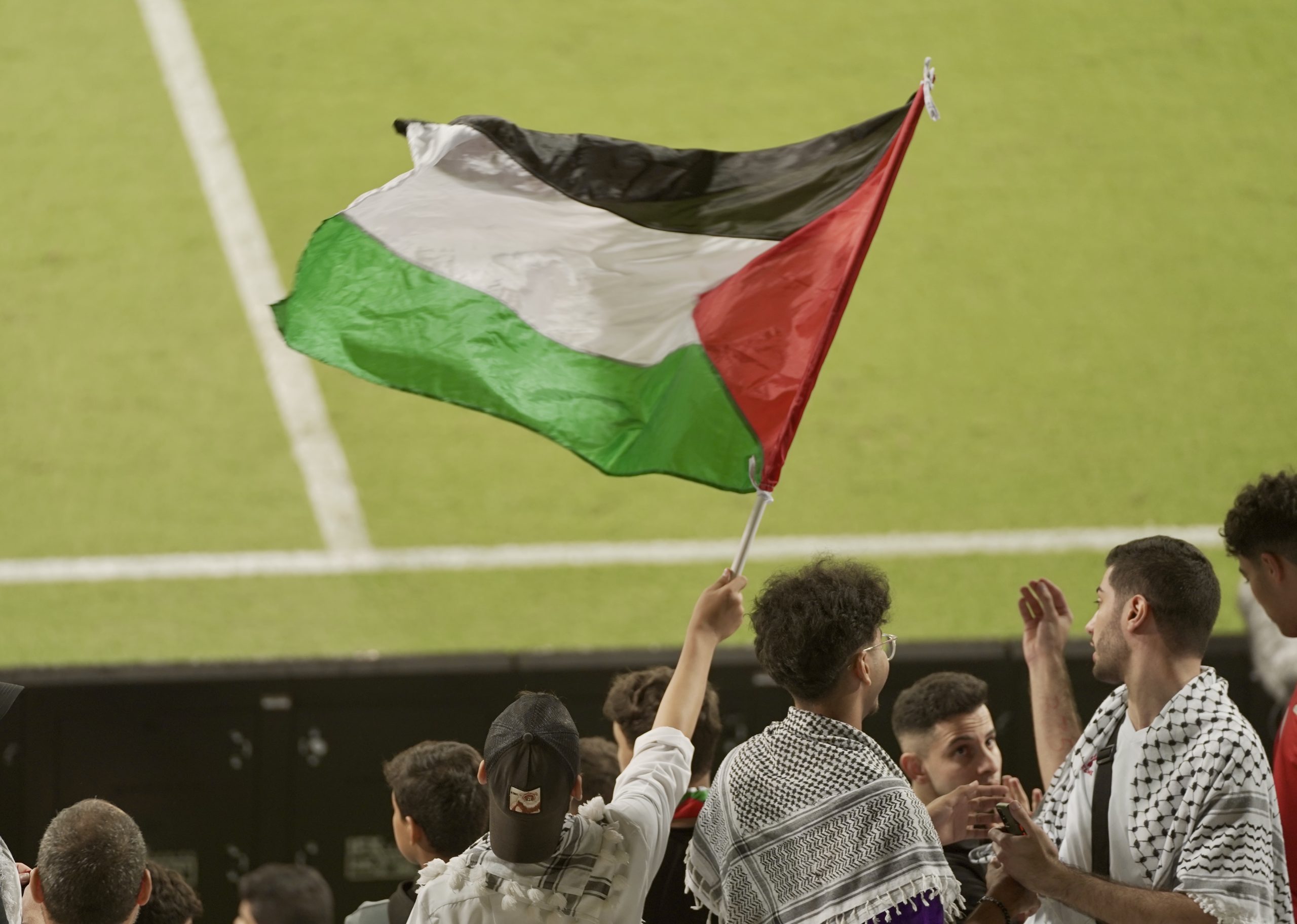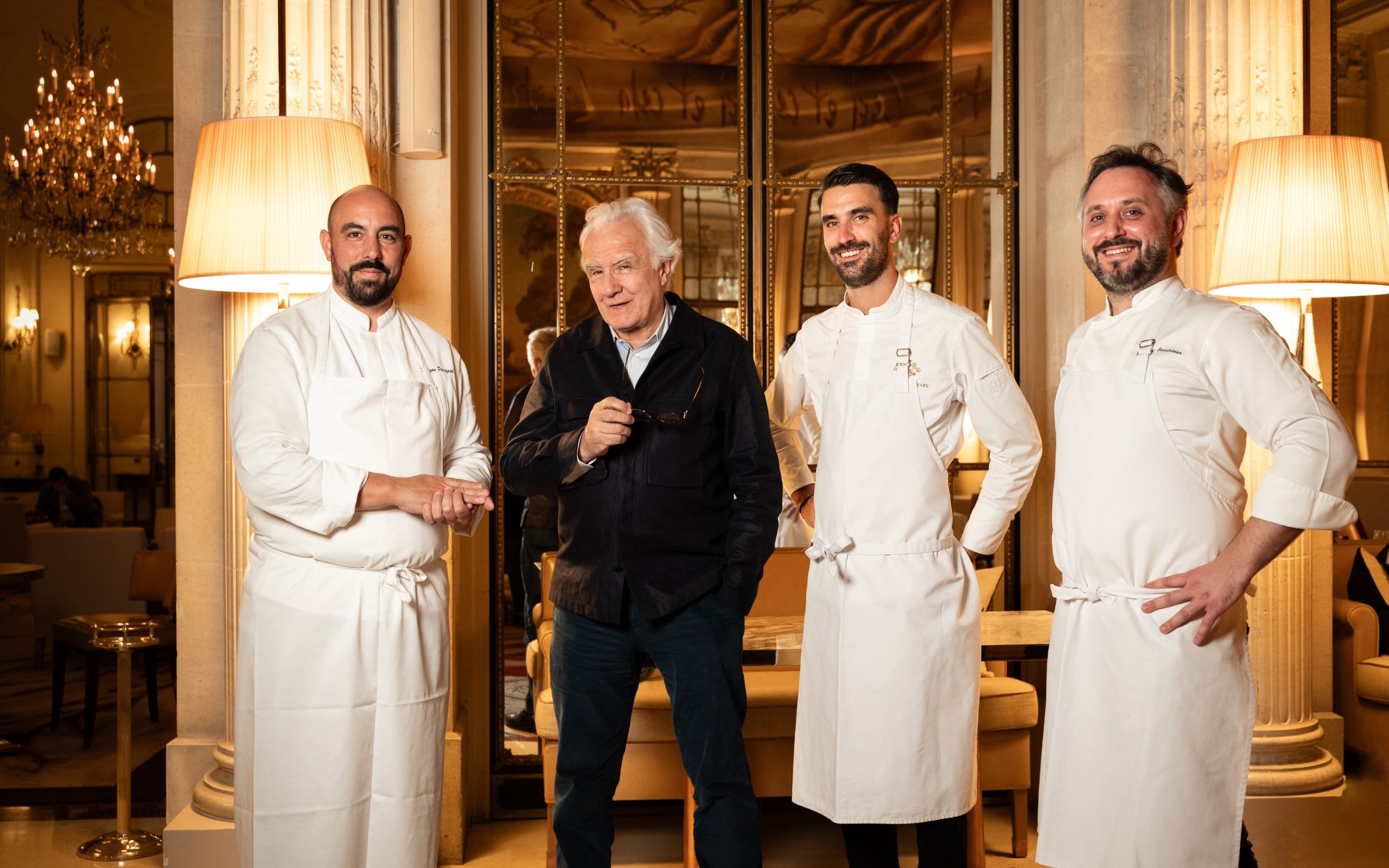In Doha and beyond, the Palestine football team’s ‘home’ games across Asia are turning stadiums into beacons of solidarity.
Amidst the sea of Palestinian flags and keffiyehs, Ahmed is taking a moment to absorb it all in. Until 2023, his heart was reserved for Real Madrid, though the 14-year-old was not the most diehard of football fans.
Now, things have changed. As soon as Ahmed got to know about Doha being Palestine’s home for the World Cup Qualifiers match against Kuwait last October, he knew he had to go.
“I’m here to meet people from my country,” he said, speaking at the match where the Palestine team have embarked on a counterattack, starting an anticipatory roar in the crowd.
Hailing from the north of the Gaza Strip, Ahmed considers himself lucky to have escaped. His family was first displaced to Egypt, six months after the Israeli onslaught on the besieged territory began on October 7.
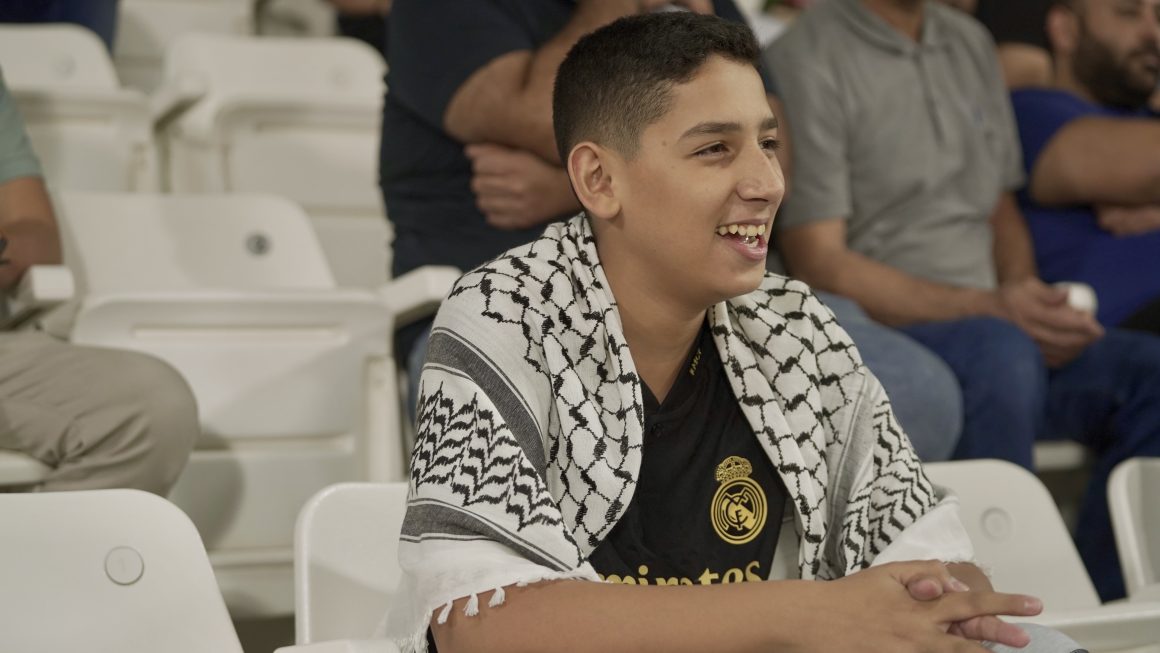
Ahmed, who is now based in Doha, is helping to translate the chants as Palestine’s on-field attacks break down.
“With our soul, with our blood, we will redeem you, Palestine!” the crowd starts to chant over and over in Arabic.
“These chants make me feel like I’m back at my home in Gaza,” says Ahmed, who is one of several Palestinians who have made it to the game on a humid evening. Just shy of 2,000 in number, they’re here to support the cause and be among their people.
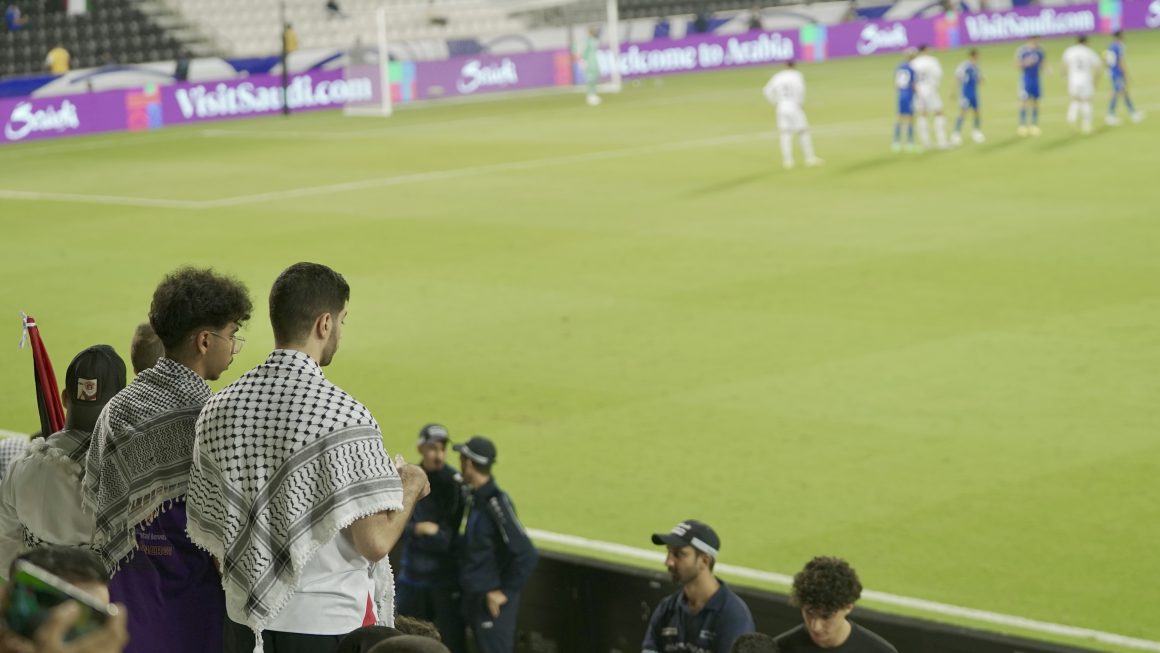
Spaces of solidarity and identity
“Our people are the source of our strength,” Palestine’s midfielder Musab Al-Battat declared ahead of the Kuwait clash.
The match was played at the Jassim bin Hamad Stadium in Doha — a city that has hosted several of Palestine’s home games over the years due to the restrictions imposed by the Israeli occupation.
“This is the least that we can do for everyone suffering back in Gaza,” Al-Battat said. “We hope to bring them joy with our wins.”
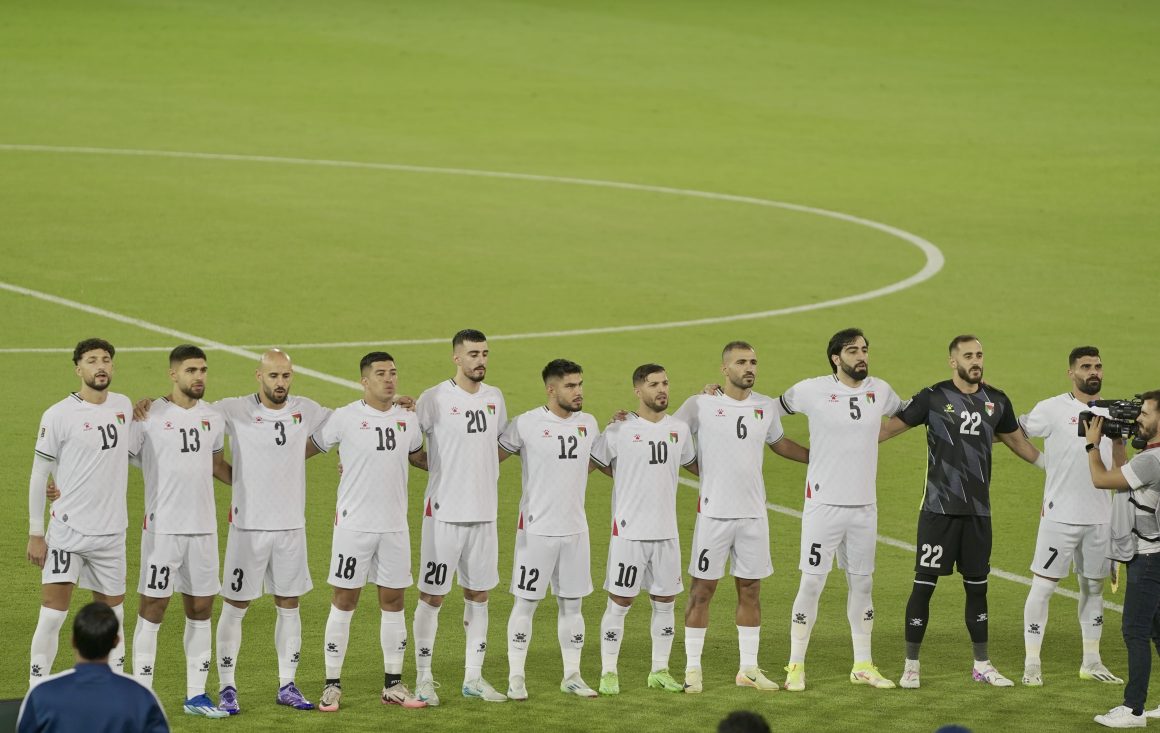
It is apparent from the kick-off whistle that Palestinian players look like the more committed ones. It bleeds into the stands, where the drumming and chants began way before the action started.
“Free Free Palestine!” The chant rings out, led by an unusual figure—a young boy perched on his father’s shoulders, towering over the crowd.
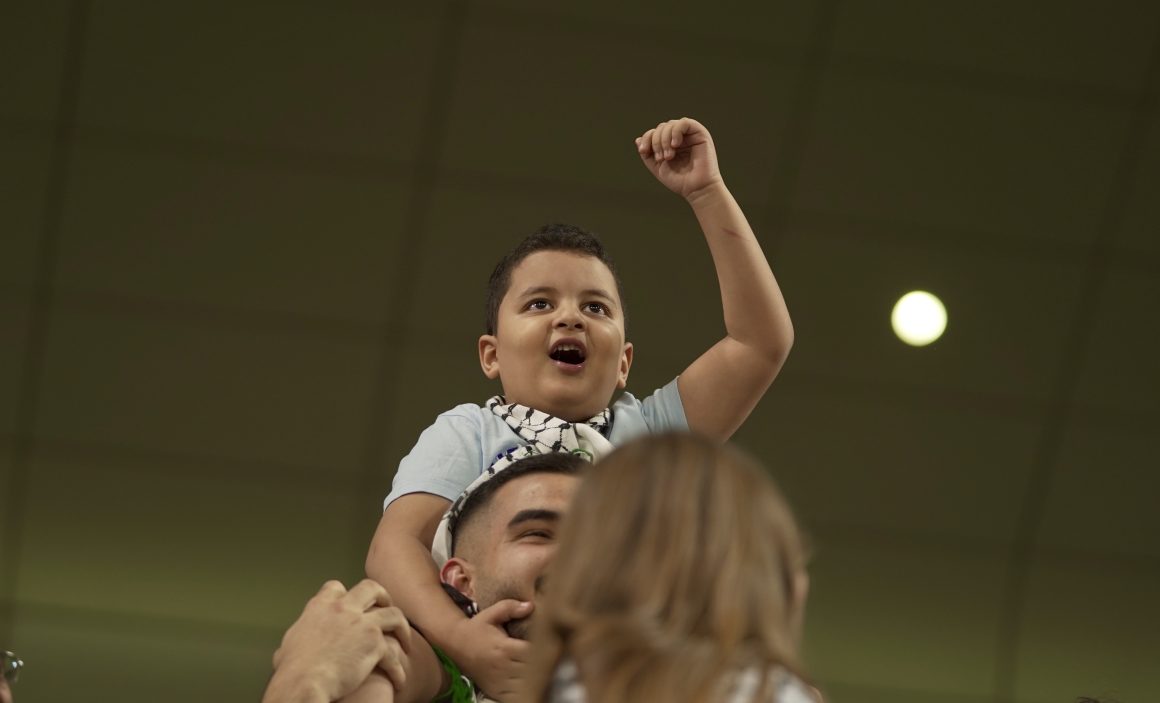
“We’ve come here to support Palestine and he loves to pick up things people say,” said Omar, the boy’s father who asked to remain anonymous. “And he loves chanting Free Palestine.”
For him, attending football matches is one of the ways to rub off the Palestinian heritage on his son.
As the stadium pulses with life and energy, countless activities emblematic of Palestinian identity unfold—activities that Omar hopes will leave a lasting impression. Chants are being passed from one person to another, keffiyehs are being draped proudly, and the beat of the drums syncs perfectly with the rhythm of the crowd.
“They are bringing attention to what has been happening for the past year through football,” he says, his son still on his shoulders. “I hope we can win today and make it [to the World Cup] in the coming days.”
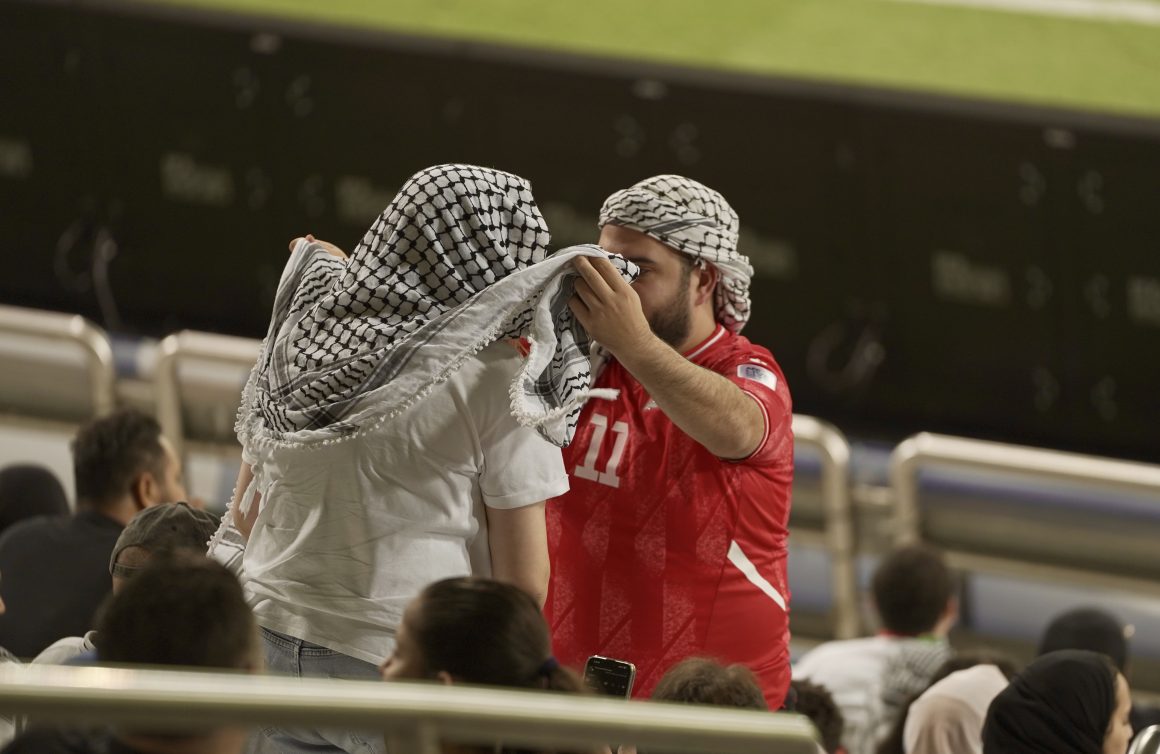
Solidarity fuels success
After an intense match, Palestine are able to salvage a 2-2 draw in the dying minutes, despite playing with 10 men for more than 35 minutes.
“Falasteen! Falasteen! Falasteen!” everyone chants as the team comes to applaud the supporters after the final whistle rings. The crowd movers closer to the pitch, applauding and chanting the names of the players.
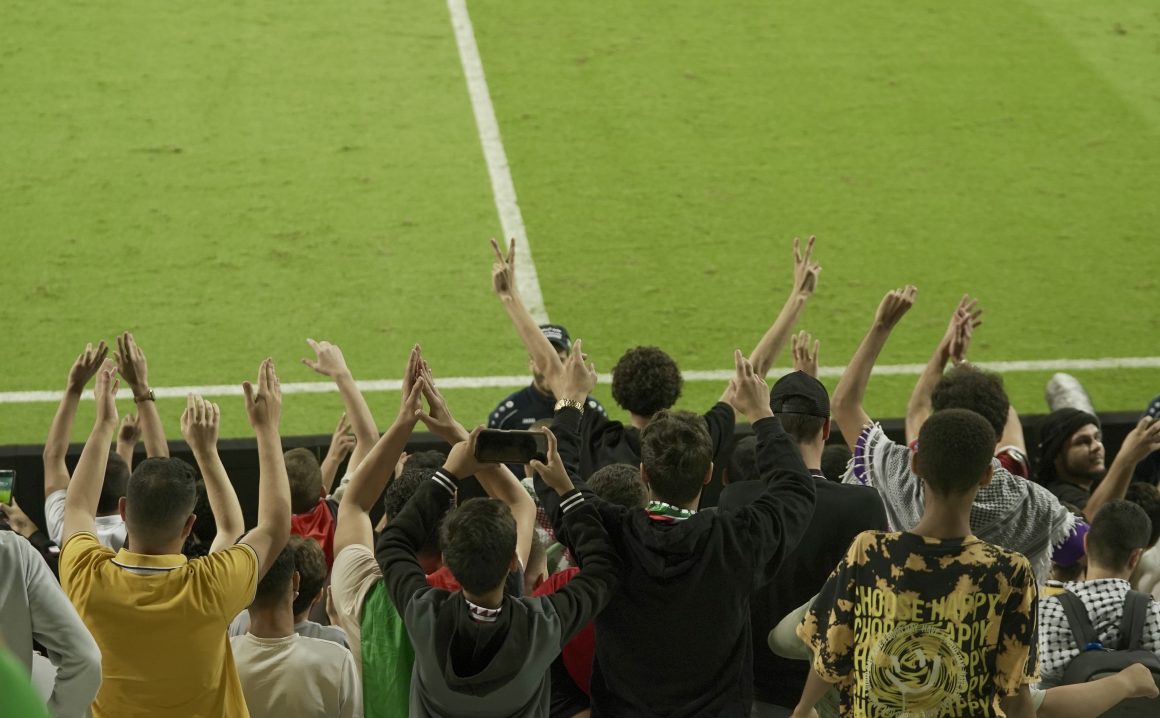
It is yet another spirited performance, reminiscent of their matches against South Korea, where they held the Asian giants to draws on both occasions—becoming the only team in the campaign so far to earn a point off them.
But what continues to fuel the Fida’i to compete against some of the finest in Asia?
Head coach Makram Daboub replied after the match: “Their love for their people.”
“They are highly motivated and you saw the support that they gave us tonight,” he said. “They want to compete for their people, to take the Palestinian flag to the World Cup.”

